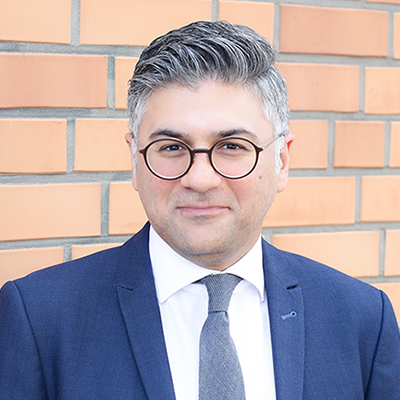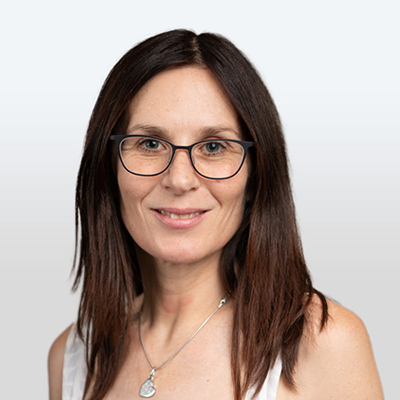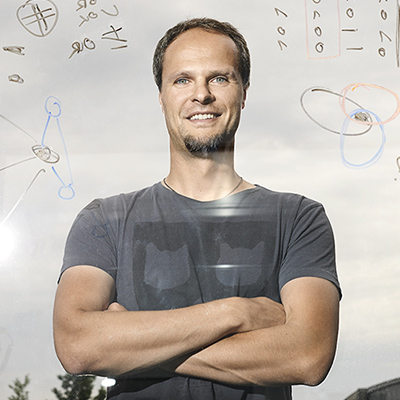20-22 May 2025
Congress Center Hamburg
Hamburg, Germany


20-22 May 2025
Congress Center Hamburg
Hamburg, Germany
The SLAS Europe 2025 Conference and Exhibition program will feature important tracks focused on life sciences and their global impact.
Special thanks to the SLAS Europe 2025 Program Chairs: Kamran Honarnejad, Ph.D. (Evotec) and Nicola Richmond, Ph.D. (Recursion).

Kamran Honarnejad, Ph.D.
Group Leader, In Vitro Biology
Evotec (Germany)

Nicola Richmond, Ph.D.
Recursion (England)

Jan Baumbach, Ph.D.
Professor and Director of the Institute for Computational Systems Biology
Hamburg, Germany

Carina Ämmälä, Ph.D.
Senior Director, Target Discovery Engine
Novo Nordisk
Oxford, England
Podium presentations will be organized into three educational tracks: Advances in Drug Discovery, Advances in Laboratory Automation and Screening Applications & Diagnostics. Track descriptions are listed below.
Explore More Details in the Event Scheduler
Get prepped for Hamburg by reviewing track-specific SLAS Discovery and SLAS Technology articles, curated by the SLAS Journals' Editorial Board members.
Access the SLAS Europe 2025 Pre-Reads
Advances in Drug Discovery
Advances in data-driven technologies and novel scientific approaches are revolutionizing the drug discovery process from early-stage research to clinical development. This track aims to provide a deeper understanding of how cutting-edge fields like integrative multi-omics, spatial biology, AI and systems pharmacology are transforming the development of novel therapeutics. Explore how the integration of translational models, drug repurposing strategies and native structure biology is accelerating the journey from scientific discovery to patient treatment, with a focus on improving both efficacy and precision in therapeutic development.
Co-chairs: Annika Jenmalm Jensen (Karolinska Institutet) and Peter Sjö (DNDi)
Session 1: Data-Driven Drug Discovery
Chair: Ellen Berg, Ph.D., Alto Predict
Session description: This session will focus on the integration of artificial intelligence (AI) into drug discovery, including predictive toxicology and predictive cell biology. Discussions will center on how data-driven approaches are reshaping the identification and development of new therapeutic agents.
Session 2: Image-driven Development for Medical Applications
Chair: Marta Carroni, SciLifeLab
Session description: This session will explore the latest advances in the usage of light and electron imaging for medical application ranging from the analysis of compounds, their delivery to the visualisation of tissues at the molecular level of details.
Session 3: Multiomics in Drug Discovery
Chair: Alain van Gool, Ph.D., Radboud University Medical Center
Session description: This session will highlight the role of multi-omics in drug discovery, with a particular focus on screening and biomarker development. It will cover advances in integrating various omics technologies to accelerate drug target identification and therapeutic advancements.
Session 4: Drug Repurposing and Systems Pharmacology
Chair: Jordi Carreras Puigvert, Ph.D., Uppsala University, Phenaros Pharmaceuticals
Session description: This session will examine strategies for drug repurposing, utilizing systems pharmacology approaches. It will showcase examples where existing drugs are repurposed for new therapeutic areas, leveraging AI and computational models for prediction and discovery.
Advances in Laboratory Automation
The Advances in Laboratory Automation track features presentations by renowned experts and innovators in their field who are at the forefront of leveraging advanced laboratory automation and IT. These technological advancements will be pivotal in driving scientific discovery forward through the enhancement of laboratory processes, and the flow and analysis of associated data. The increasing volume of data generated from omics, high content screening, drug discovery and sample management has catalyzed the development of cutting-edge algorithms rooted in big data analytics and machine learning/artificial intelligence. Attendees can anticipate gaining valuable insights into the utilization of the latest laboratory automation and IT breakthroughs that have the potential to revolutionize their businesses and streamline their processes. This track will also include a special session sponsored by ELRIG focusing on scaling complex in vitro models.
Co-chairs: Mike Gray (GSK) and Johanna Huchting (Fraunhofer Institute for Translational Medicine and Pharmacology)
Session 1: AI/ML and HTE for Chemistry Expansion
Chair: Liam Wilbraham, Recursion
Session description: The exploration of vast chemical space promises to uncover novel therapeutic agents with desirable properties for any given biological target. This session showcases the impact of (generative) AI and high-throughput experimentation to enhance the efficiency of design-make-test-analyse cycles. Tools to analyse and sample ultra large chemical spaces and methods for large-scale in silico potency prediction are matched with increasing computing power to greatly enhance molecular design. High-throughput experimentation yields the material for direct-to-biology setups as well as rich data sets feeding predictive models for synthetic tractability.
Session 2: Sample Management
Chair: Darren Rimmer, GSK
Session description: This session will provide a broad overview of advancing automation systems, platforms and progression of Autonomous Robots within Sample Management Laboratories. Sample Management groups across the Industry have a rich pedigree of embracing new Automation Technologies to aid efficiencies in the formatting and supply of samples. The speakers will discuss their approaches to designing and implementing new Technologies and Automation platforms for current and future demands.
Session 3: (ELRIG Session) Scaling Complex in Vitro Cell Models’
Chair: Lisa Mohamet, GSK, ELRIG Board Member
Session description: We have made significant investments to more effectively translate targets into clinical success; including drug targets supported by genetic evidence, single cell profiling (cell-atlasing) in healthy/disease relevant tissues to elucidate disease phenotypes and target expression; and the application of translational genomics data and mechanistic insights to bridge the gap between target discovery and the clinic (right target to the right patients) - significantly increasing R&D productivity. However, the primary reason for termination of drugs at Ph2/3 remains attributed to lack of human efficacy; further substantiated by the recent FDA 2.0 modernisation act. This exemplifies an inability to reproduce and robustly interrogate human ‘disease in a dish’ to enable target and candidate selection. We will outline innovative tools & technologies being applied to enable translational biology at scale.
Session 4: Automating Discovery: AI-Driven Advances in Structural Biology and Imaging
Chair: Maya Topf, Center for Structural Systems Biology
Session description: This session highlights how automation is transforming structural biology and imaging, from streamlining data collection to enhancing analysis. Speakers will discuss both AI-driven and broader approaches that accelerate discovery and improve structural insights.
Screening Applications & Diagnostics
The Screening Applications & Diagnostics track provides a clear perspective on the evolving landscape of screening applications and diagnostics, particularly in light of the medical and scientific challenges emerging in the post-COVID era. Renowned experts and innovators will guide us through the latest technologies and breakthroughs shaping emerging topics, including renewed interest in phenotypic screening, advancements in label-free technologies, functional genomics, precision medicine, and minimally invasive diagnostics. Additionally, the role of AI and machine learning in streamlining target and lead discovery, as well as addressing global challenges like drug resistance, widespread antibiotic misuse, and disease management, will be explored. We will delve into the integration of these technologies into new patient-centric testing paradigms, such as point-of-care and at-home testing. Attendees can expect unique insights into cutting-edge innovations as experts highlight key trends to watch in the coming years.
Co-chairs: Enrique Hernández Jiménez (Loop Dx) and Fernando Ramon-Olayo (Servier)
Session 1: Functional Genomics in Drug Discovery and Precision Medicine
Chair: Ceri Wiggins, Ph.D., AstraZeneca
Session description: Explore how cutting-edge functional genomic technologies, such as CRISPR, are revolutionizing drug discovery and precision medicine. This session delves into the integration of genetic perturbation screening technologies with disease-relevant models and predictive readouts to support target identification, elucidate genotype-phenotype relationships, map disease-linked regulatory landscapes and investigate drug-target interactions.
Session 2: Innovating Minimal Invasive Diagnostics: From Innovative Biomarkers to Digital Health
Chair: Erika Plata, MD, MSc, The View Hospital
Session description: Explore minimally invasive diagnostic technologies like liquid biopsies, IVD tests, digital health tools and remote monitoring systems that enhance diagnostic accuracy while reducing invasive procedures. The session covers biomarker-based tests for early detection, personalized therapy, patient stratification and companion diagnostics with a focus on conditions like cancer or sepsis. Additionally, the session addresses how digital tools and remote monitoring are transforming patient rehabilitation and acute care, improving outcomes in areas such as sepsis management and hand function recovery.
Session 3: Phenotypic Screening in the Digital Era
Chair: Amaury Fernandez, Ph.D., Boehringer-Ingelheim
Session description: Provide a vision of the impact of digital tech on different components of the DD process, from target identification to in silico pre-selection of the libraries to test, with special emphasis on phenotypic screening. This session will display examples of decision-making and phenotypic screening as a target identification engine.
Session 4: Label-free Technologies to Enable Screening in More Native Contexts
Chair: Fernando Ramon Olayo, Ph.D., Servier
Session description: Present current trends in the exploitation of label-free technologies to increase the predictive power of screening assays. This session will span a wide range of approaches enabling monitoring of biological entities and systems in their native state.